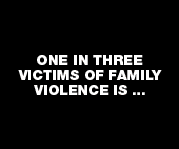Don't Alienate The Kids
 Tuesday, April 27, 2010 at 10:30AM
Tuesday, April 27, 2010 at 10:30AM 
With special guests:
- Bill Eddy and
- Debra Rankin.
The psychological and physical kidnapping of children in custody disputes, is often referred to as Parental Alienation, while it is also described by various other names when used in different settings. There are many who regrettably are still in denial that this phenomenon actually occurs, however for those parents and children who have found themselves a victim, the loss is extremely painful and very real.
This week we speak with two people, who are very much aware of the damage caused by the failure of our legislators, to understand the horrific ramifications of the soul destroying Family Justice System they have created.
Our first guest is Bill Eddy, author of a new book ‘Don’t Alienate the Kids! (Raising Resilient Children While Avoiding High Conflict Divorce). This is a fresh examination of the child alienation problem and an analogy of the Parental Alienation Syndrome vs. the assumption of Child Abuse debate.
Eddy doesn’t just evaluate the Parental Alienation Syndrome vs. Child Abuse Presumption debate, he proposes his own theory of “1000 Little Bricks”, based on recent breakthroughs in brain research about how children learn.
We end the show interviewing Debra Rankin, founder of ‘Alienated Parents Australia’, herself an alienated mother, who together with her children has joined the ever swelling ranks as victims of Parental Alienation Syndrome.
Debra has decided it is time to look at new ways to educate the community about the hidden effects that badly flawed Family Laws can have on unsuspecting separating parents and their children.
As an artist, she has created a collection of works illustrating the ravages of Parental Alienation Syndrome, and will hold an exhibition at Lismore on the NSW north coast from 3rd to the 14th May. Every interested member of our community who would like to learn more about PAS, will be made very welcome.
The following information can be found on the High Conflict Institute website:
High-Conflict divorces are on the increase. With it, more cases of child alienation are appearing - when a child resists or refuses to spend time with one of his or her parents. For the past 25 years, families and family courts around the world have been fighting over who is the “all-bad parent” who caused this problem: Was one parent really abusive? Or did the other parent purposefully alienate the child against the “rejected” parent? (This problem is often referred to as Parental Alienation Syndrome.)
High Conflict People (HCPs) blame somebody else—almost anybody—when things don’t go well for them. Most people don’t understand HCPs, but they have known several and realized that something was different about them.
In High Conflict disputes, the HCP takes no responsibility for being part of the problem or the solution. So the problem just gets worse. They aren’t just difficult people—they are the MOST difficult people, because they’re preoccupied with confronting a Target of Blame, and the Target of Blame could be anyone—even you.
In his new book, Don’t Alienate the Kids! (Raising Resilient Children While Avoiding High Conflict Divorce), Bill Eddy presents a new theory of child alienation in divorce. In his theory, there are no bad parents - just bad behaviors, many of them inadvertent by many people including family, friends, professionals and the family court adversarial process. All of these bad behaviors combine into “1000’s of Little Bricks” that build a wall between a child and one of his or her parents. It’s really a result of a Culture of Blame that builds up around the child - and the child joins in.
But parents, family, friends and divorce professionals have a choice. They can use these bricks to build a Foundation of Resilience instead - even during a divorce. Eddy says that the goal of the book is to explain all of the little behaviors (little bricks) that parents and professionals should avoid, and all of the little behaviors (little bricks) that they should use to build this Foundation.
However, Eddy is no stranger to high-conflict behavior. He knows that there are many parents who have “high-conflict personalities” who are very unlikely to change at all. They will just keep blaming the other parent and negatively influencing the child. His goal is to get the reasonable parent and professionals to avoid getting “emotionally hooked” into the battle. Rather than fight over which parent to eliminate, his approach focuses on containing the conflict, protecting the children and including some involvement of both parents in the children’s lives. He shows how parents and professionals can teach the children skills of resilience - to the best of their ability - rather than seeking extreme decisions in family courts.

